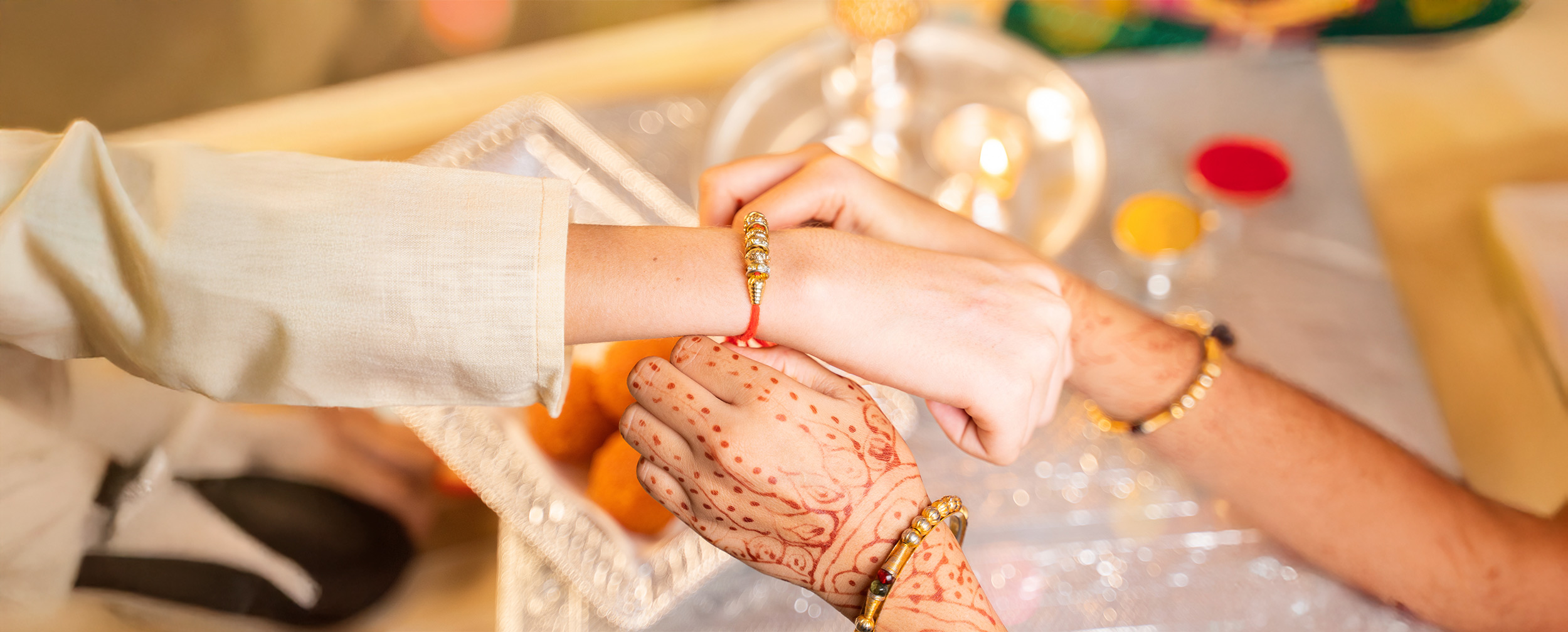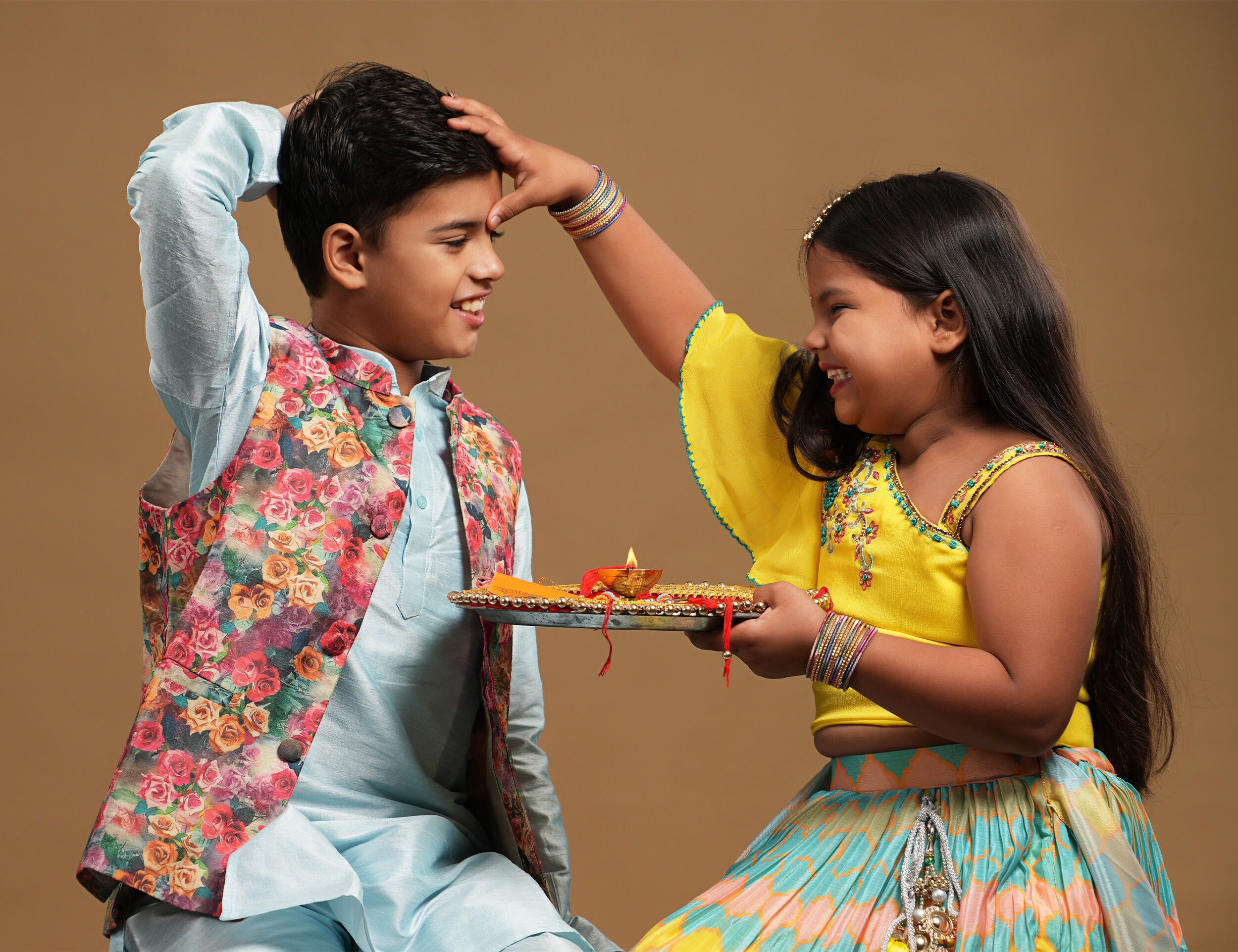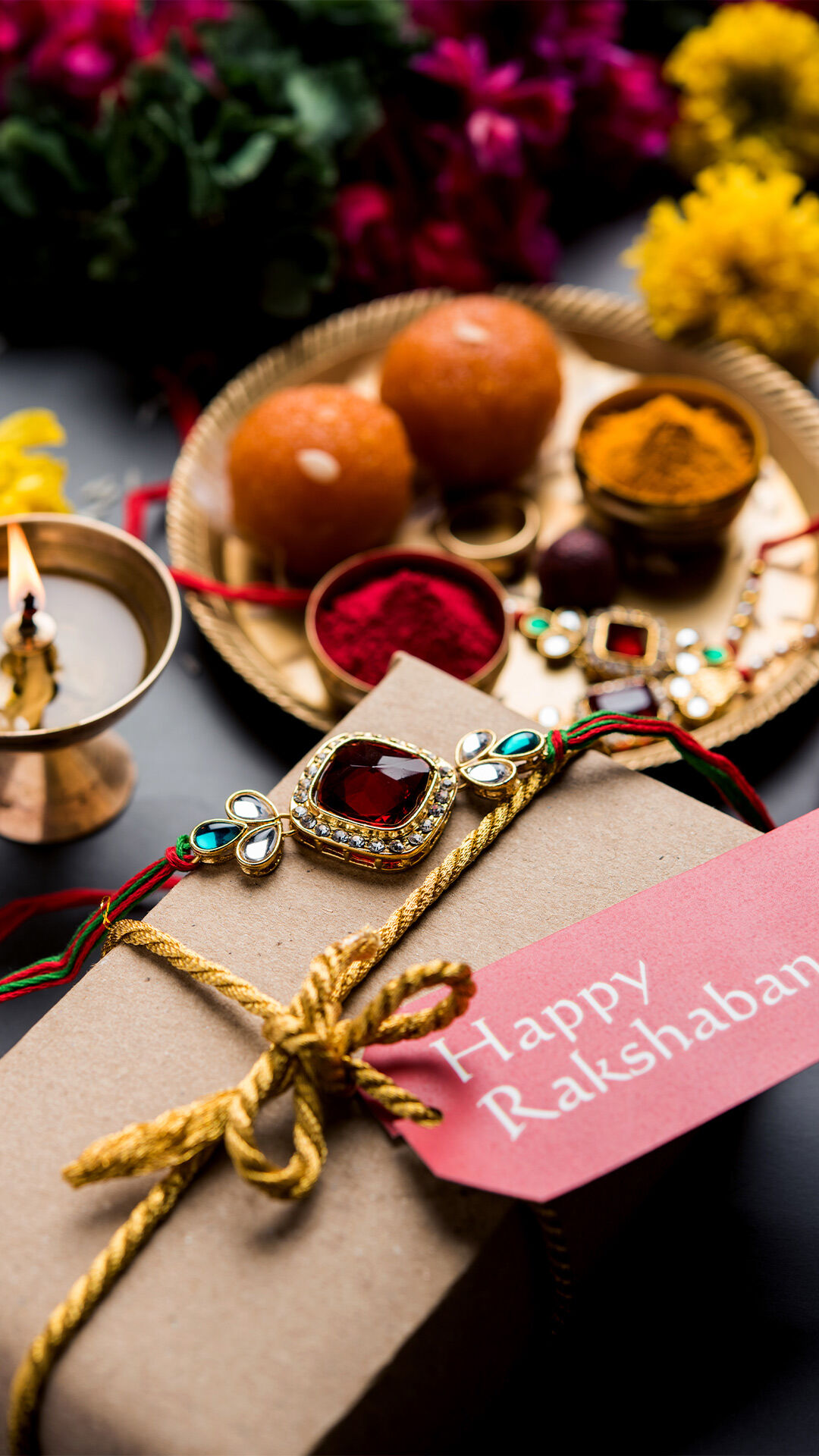STORIES BY MANYAVAR & MOHEY

Lifestyle
Knots of Love: Fascinating Facts on Why Raksha Bandhan Is Celebrated
Date 26 June 2025 Reading time: 7-10 mins
Every year, as the monsoon showers drench the land, Indian households light up with joy, tradition, and the warmth of togetherness. Sisters carefully choose beautifully crafted rakhis, brothers prepare heartfelt gifts, and kitchens buzz with the making of delicious festive sweets.
This cherished occasion is none other than Raksha Bandhan, a festival deeply embedded in the cultural and emotional tapestry of the country. But why is Raksha Bandhan celebrated? It is a celebration of the enduring sibling bond—marked by the tying of a rakhi, a sacred thread that signifies love, trust, and lifelong protection.
About Raksha Bandhan, it is more than a ritual; it is a reaffirmation of emotional ties, a celebration that brings families closer through acts of affection and a timeless promise of support and unity.
What is Raksha Bandhan?
Raksha Bandhan, also known as Rakhi, is a revered Hindu festival celebrated across India and by Indian communities worldwide. It falls on the full moon day of the Shravan month, usually in August. The term "Raksha Bandhan" derives from Sanskrit, meaning "the bond of protection," which aptly captures the festival’s spirit.
During this Raksha Bandhan celebration, sisters ceremoniously tie a rakhi, a sacred and decorative thread, around their brothers’ wrists while offering prayers for their well-being, success, and longevity. In return, brothers pledge lifelong protection and shower their sisters with thoughtful gifts.
About Raksha Bandhan, it is more than just a ritual—it is a heartfelt expression of the enduring bond between siblings. The festival continues to evolve, embracing inclusivity while upholding the timeless values of love, trust, and mutual respect that define familial relationships.
Why Raksha Bandhan is Celebrated: The Historical Context
To understand why Raksha Bandhan is celebrated, one must explore its rich historical and mythological roots. The story behind Raksha Bandhan is steeped in tales that highlight its significance as a symbol of protection. A prominent narrative from the Mahabharata involves Lord Krishna and Draupadi.
When Krishna injured his finger, Draupadi tore a piece of her saree to bandage it. Moved by her kindness, Krishna promised to protect her—a vow he honoured during her humiliation in the Kaurava court. This story behind Raksha Bandhan underscores the festival’s theme of loyalty and safeguarding.
Another compelling story behind Raksha Bandhan comes from the Puranas, where Goddess Lakshmi tied a rakhi to King Bali, securing the return of her husband, Lord Vishnu. This tale emphasises the rakhi’s power to forge bonds of benevolence and trust.
Historically, the festival also bridged divides, as seen in the account of Rani Karnavati of Mewar sending a rakhi to Mughal Emperor Humayun for protection against invaders. Though he arrived too late, this story behind Raksha Bandhan illustrates how the festival fostered alliances across cultures. These narratives collectively reveal why Raksha Bandhan is celebrated—as a testament to duty, honour, and the protective ties that bind us.
The Significance of Raksha Bandhan in Modern Times
In an era of rapid change and global connectivity, Raksha Bandhan remains a vital link to familial roots. Why is Raksha Bandhan celebrated in India today? It serves as a reminder of the sibling bond amidst busy lives and physical distances. The festival has evolved, embracing not just biological siblings but also friends, cousins, and community members, reflecting its inclusive spirit.
The Raksha Bandhan celebration now incorporates modern elements like virtual ceremonies and online gifting, yet its core remains intact—a pledge of love and protection. About Raksha Bandhan, it adapts to contemporary needs while preserving its timeless values, ensuring its relevance in a dynamic world.
Rituals and Traditions of Raksha Bandhan
The Raksha Bandhan celebration is marked by rituals that blend symbolism with heartfelt tradition. Sisters prepare a thali with a rakhi, sweets, a diya, and vermilion, then tie the thread on their brothers’ wrists, applying a tilak and performing an aarti to wish them well. Brothers, in turn, vow to protect their sisters and present gifts as tokens of affection. About Raksha Bandhan, these acts are more than customs; they reinforce the sibling relationship with every gesture.
The occasion also sees families dressing festively, often choosing traditional dresses for women like sarees or suits, enhanced by women’s accessories such as bangles. Sarees for women, with their elegance, elevate the festive mood, making the day visually and emotionally vibrant. Men typically opt for Nehru jackets or kurta pajama sets, reflecting both cultural pride and festive spirit.
These ensembles contribute to the vibrant ambience that defines the Raksha Bandhan celebration, making it a visually rich and emotionally meaningful occasion for all.
Why Raksha Bandhan is Celebrated Across Different Cultures
Why is Raksha Bandhan celebrated in India and beyond with such heartfelt devotion? The answer lies in its universal values of love, protection, and togetherness that transcend religious and regional boundaries. While rooted in Hindu traditions, Raksha Bandhan has gracefully woven itself into the fabric of diverse cultures.
In Nepal, it coincides with Janai Purnima, where sacred threads are tied by men as a symbol of spiritual renewal. In West Bengal, it aligns with Jhulan Purnima, a celebration of Lord Krishna and Radha’s divine bond. Though it's not directly related to the sibling bond, both festivals fall on the full moon day of the Hindu month Shravan (Shravan Purnima)—so they are observed around the same time, sometimes even on the same day.
Among the global Indian diaspora in countries like the United Kingdom, the United States, and Canada, Raksha Bandhan is marked with a blend of rituals and contemporary expressions. Despite differences in language and practice, the story behind Raksha Bandhan—of promises kept and bonds honoured—remains deeply resonant. Its adaptability and emotional depth have helped it evolve into a cherished tradition that fosters unity, reinforces familial ties, and bridges cultures across the world.
Timeless Threads That Celebrate the Sibling Bond
Raksha Bandhan is a celebration of one of humanity’s most enduring relationships—the sibling bond. Why is Raksha Bandhan celebrated? Its meaning lies in its rich tapestry of history, mythology, and modern relevance, from ancient promises of protection to today’s inclusive festivities.
Why is Raksha Bandhan celebrated in India and beyond with such devotion? It is because it encapsulates values of love, duty, and unity that remain vital across time. As families gather to tie the rakhi, they reaffirm a commitment that transcends the thread itself—a pledge of lifelong support and affection. About Raksha Bandhan, it is a timeless tradition that continues to strengthen the ties that bind us, making it a festival of profound significance.
For brothers and sisters looking to make this year's celebration extra special, explore Manyavar's Raksha Bandhan collection for men and Mohey for women's outfits designed to help you dress your best for this cherished occasion that celebrates one of life's most precious bonds.







